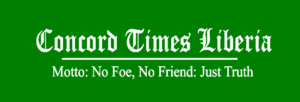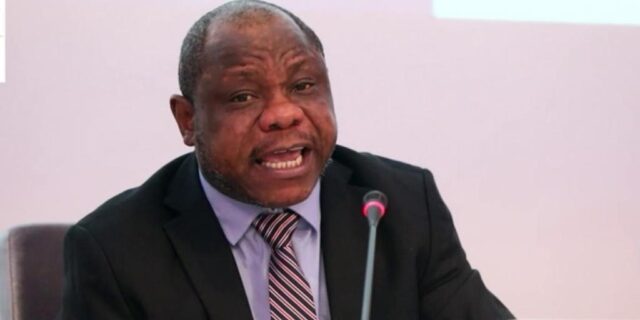Monrovia, Liberia – A recent investigation has uncovered significant discrepancies and potential fraud in the previous administration of the Coalition for Democratic Change (CDC) under George Manneh Weah. The probe focuses on a US$25 million foreign exchange infusion intended to reduce excess liquidity and stabilize the money market.
The investigation, which analyzed communications, auction records, banking operations, and accounting records, focused on verifying the trading and accounting of the funds between July 17, 2018, and October 26, 2018, has revealed.
In 2018, Liberia’s Finance Minister Samuel D. Tweah under the CDC Government reported US$25 Million was released to money changers to reduce excess liquidity.
The end result was a total disaster, where Tweah and his cohorts could not account for the funds. Tweah attempted manufacturing figures but were largely rejected by GAC auditors.
The former finance minister had announced he took the money to the streets to stabilize the money market. But it was a total failure and has since not accounted for the lost funds.
Six teams were deployed to various locations for the mop-up exercise, aimed at ensuring the amounts listed in summary reports matched transaction receipts.
However, recent findings conducted by independent from the investigative Journalists have raised serious concerns about the integrity of the reported data.
Teams and Operations
Team 1, led by George K. Scott, Sr., operated between City Hall and ELWA Junction towards the Rehab community.
Team 2, under Kontar K. Richards, worked in the Paynesville community.
Team 3, headed by Alexander G. Diggs, focused on Waterside, Vai Town, Freeport, and Somalia Drive.
Team 4, led by Dekontee A. Hills, covered Duala, Rally Town, and Water Street.
Team 5, directed by Matthew Peters, worked from Bushrod Island to Central Monrovia and Red Light.
Team 6, led by J. Domah Conto, operated at the Central Bank headquarters, disbursing US dollars post-verification.
Major Findings
The investigation revealed significant discrepancies, including the absence of thirty-two institutions from detailed and summary reports issued by Miss Massa Sonie, Assistant Director for Banking. These institutions, supposedly part of the mop-up exercise, were untraceable in official records, raising concerns about data integrity.
Recalculations of daily records from July 17, 2018, to October 26, 2018, showed eighty-five institutions with variances between reported amounts on summaries and aggregate daily receipts.
This indicated discrepancies in the US dollars sold and Liberian dollars purchased by the teams.
Further, the Central Bank of Liberia (CBL) team assigned to generate reports from field data often disregarded these records, generating their own and misattributing transactions without proper documentation. This manipulation of data severely undermined the credibility of the mop-up exercise.
Financial Discrepancies and Possible Fraud
The analysis suggested possible fraud, with significant amounts unaccounted for:
Unjustified or unexplained amounts: US$7,516,306.77
“Confusion” category: US$1,445,542.00
Unofficially disbursed by TEMT team: US$17,000,000.00
Unverified by LACC and GAC: US$8,000,000.00
In total, the problematic and potentially fraudulent amounts summed up to US$25,000,000.00, coinciding with the entire market infusion. These findings point to systemic lapses in oversight and execution, suggesting potential corruption within the involved institutions.
Call for Action
The investigation calls for urgent corrective measures to address these discrepancies, emphasizing the need for stringent audits and transparent verification processes to restore public confidence in GOL’s financial management. It also highlights the necessity for enhanced regulatory mechanisms to prevent future financial mismanagement.
As the investigation progresses, further details may emerge, potentially implicating more individuals and institutions. The GOL faces a critical juncture in addressing these findings to uphold the integrity of its financial operations and restore trust among its citizens and international partners.








